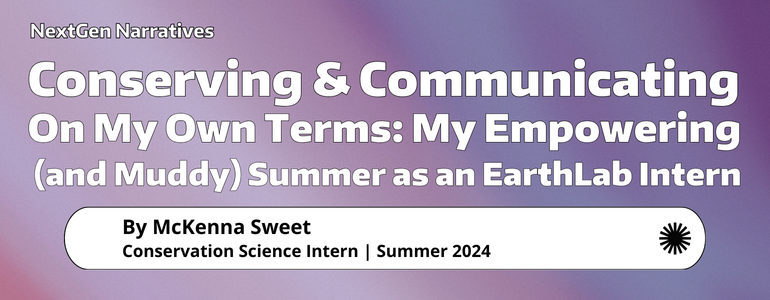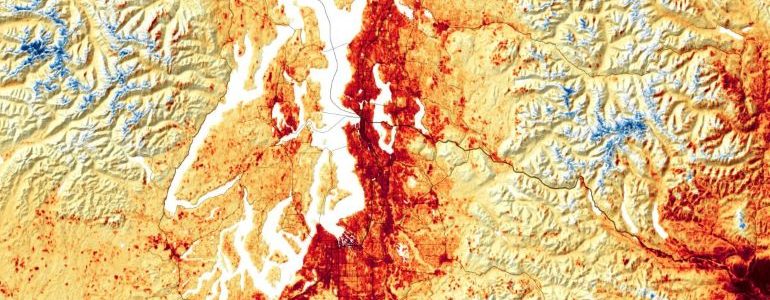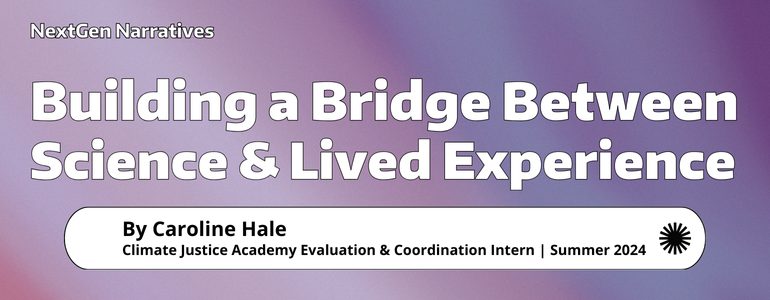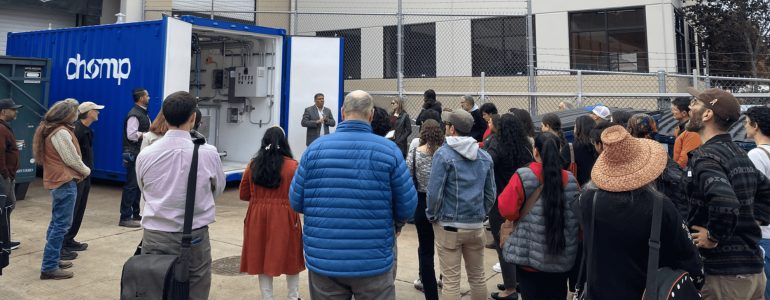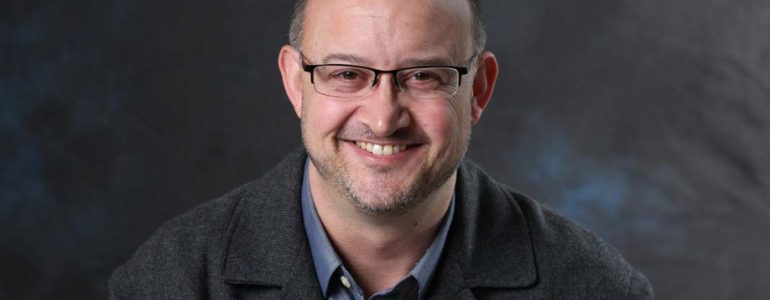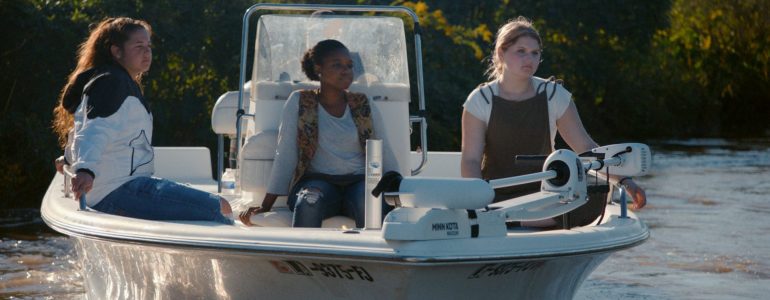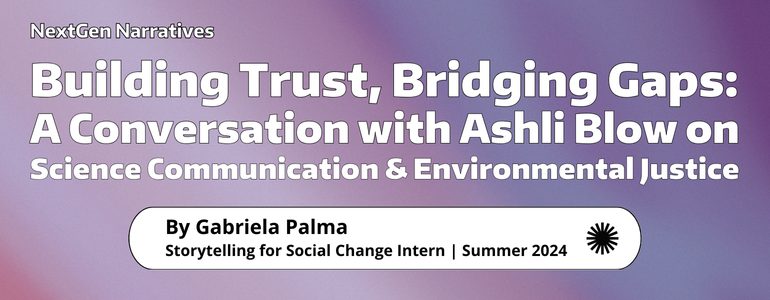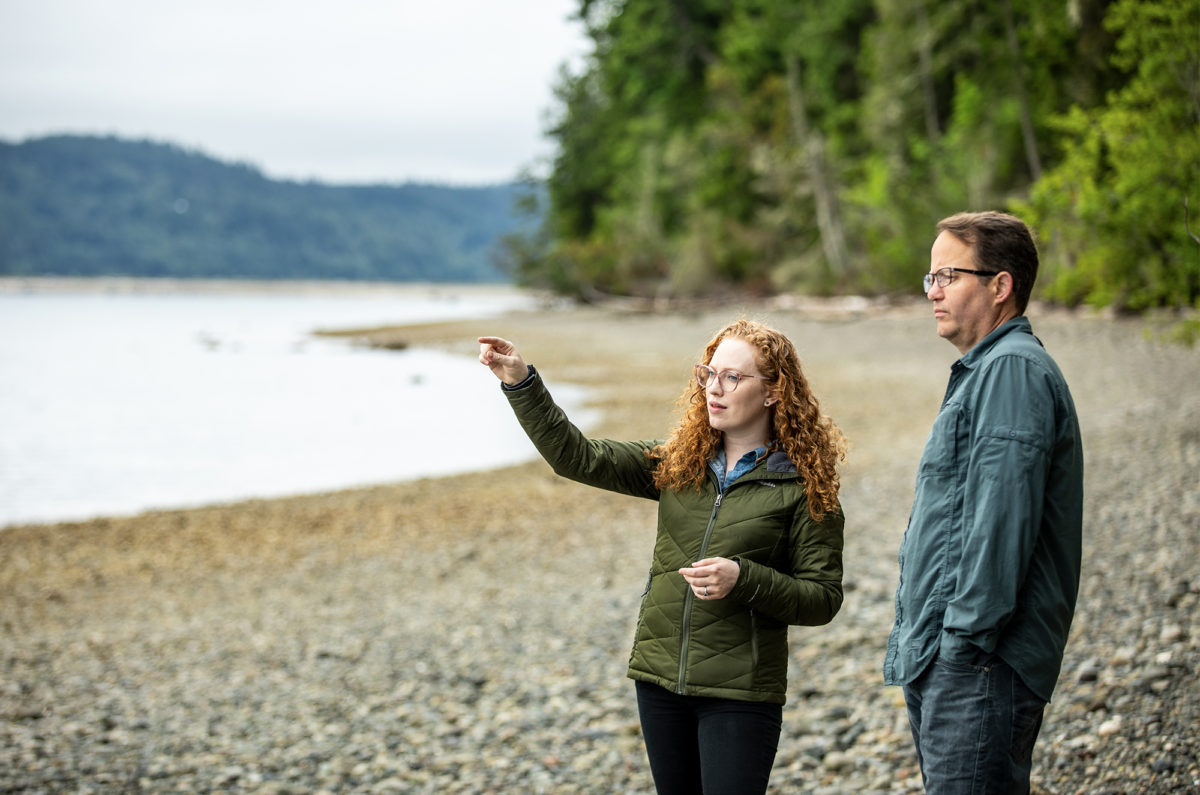EarthLab News
Conserving and communicating on my own terms: My empowering (and muddy) summer as an EarthLab intern
By McKenna Sweet
Conservation Science Intern, Summer 2024
I want to go into wildlife conservation.
This is something I’ve known since my sophomore year of high school after watching an episode of Planet Earth II that highlighted the endangered Indri lemurs, who are endemic to Madagascar. This is also something I tell people when they ask what my majors are and what I want to do after I graduate.
Video: Talking about climate and weather with the Office of the Washington State Climatologist
From their base at the southwest corner of the UW’s Seattle campus, Guillaume Mauger and Karin Bumbaco with the Washington State Climate Office (an EarthLab member organization) provide expertise, tools and resources on “all things climate” to partners and communities across the state.
Read moreTurning the tide: Spotlight feature on Chris Mantegna, UW Student and EarthLab Innovation Grantee
Chris Mantegna, part of the Innovation Grantee team "Increasing Environmental Connection, Literacy and Engagement through an Art + Science Collaborative Education Practice," is studying how pollutants affect shellfish in our food web — and training a new generation of marine scientists.
Read moreClimate change intervention: UW faculty lead charge with innovation, research
A new $3.8 million grant from the National Institutes of Health will establish the new Research and Engagement on Adaptation for Climate and Health (REACH) Center, located within the Center for Health and the Global Environment (CHanGE), of which Hess is the director. Funding for the new REACH Center includes a randomized trial to evaluate CHanGE’s Climate Health and Risk Tool (CHART) model involving 30 city and county health departments across the country.
Read moreNextGen Narratives | Building A Bridge Between Science and Lived Experience
By Caroline Hale
Climate Justice Academy Evaluation & Coordination Intern, Summer 2024
I grew up very curious about the environment and the natural world around me; as I have grown, so has this curiosity. Questions that pique my interest include: what level of responsibility do we as humans have to protect the environment? What does protection even mean, and do some people carry more responsibility for environmental stewardship than others?
From Trash to Treasure: How the South Park Biodigester is Bringing New Life to the Community
By Allie Long
What if our garbage didn’t end up in the landfill, but instead could transform into something that was life-giving and helpful? Fortunately, for residents of Seattle’s South Park neighborhood, this idea has become a reality.
The Duwamish Valley Sustainability Association (DVSA), together with support from the South Park community, University of Washington’s EarthLab, the EPA, Food Lifeline, the City of Seattle, Seattle Parks Foundation, Sustainable Seattle, ECOnorthwest, NextCycle and 360 Social, has spent the last several years creating the first community-owned biodigester in Seattle.
2024 Report of the Lancet Countdown reveals record-breaking health threats of climate inaction
Dr. Jeremy Hess, director of the Center for Health and the Global Environment, is a contributing author to the Lancet Countdown 2024 Report and a senior author on the accompanying U.S. Country Brief.
Read moreRegister for an exclusive screening of Hollow Tree: Growing Up at the End of the Earth
Future Rivers is hosting another film series this academic year to bring forward concepts of community, climate and fresh water. We will open the series on Tues., Nov. 26 with an exclusive screening of Hollow Tree: Growing Up at the End of the Earth.
Read moreBuilding Trust, Bridging Gaps: A Conversation with Ashli Blow on Science Communication & Environmental Justice
By Gabriela Palma
Storytelling for Social Change Intern, Summer 2024
As a recent graduate from the University of Washington with a degree in Communication and Environmental Health, my passion for science communication stems from a desire to learn about environmental health, share this knowledge with my friends and family, and address the gap between the scientific community and the public.
Science communication is not just about articulating complex scientific issues; it’s also about making science accessible and encouraging people to be part of the solutions.
EarthLab Releases First-Ever Impact Report, Showcasing Early Achievements and Future Aspirations
Seattle, WA – October 7, 2024
(Leer en español)
EarthLab, an institute at the UW College of the Environment taking equitable action on climate change, is proud to announce the release of its inaugural impact report. This document highlights EarthLab’s significant achievements from January 2021 – June 2024 and outlines its ongoing commitment to fostering innovative, equitable climate solutions.
“Releasing EarthLab’s first impact report is an honor that I share on behalf of all the community partners, staff, researchers, and students that make up our community,” shared Executive Director Ben Packard.
